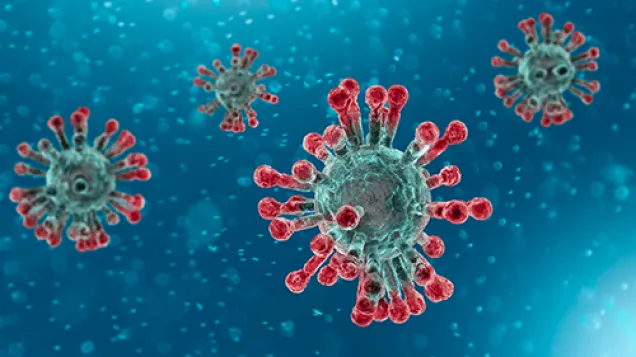Transitioning beyond the acute phase of the COVID-19 pandemic: Approaches and tools used by a sample of EU countries in the transition and de-escalation phase – interim report
Public health guidance
While the COVID-19 pandemic is not yet over, European Union (EU)/European Economic Area (EEA) countries are transitioning beyond the acute phase of the pandemic and towards a more sustainable and integrated approach to COVID-19 response in the longer term.
In February and March 2022, ECDC carried out a series of dialogues with selected EU countries to discuss their approaches to transitioning into the post-acute phase of the pandemic and/or de-escalating measures, including their plans regarding specific key areas. The synthesis and sharing of the experiences and approaches by the selected EU countries that participated in the dialogue are presented in this document and linked with tools ECDC has developed during the pandemic that can be used in support of this process.
In February and March 2022, ECDC carried out a series of dialogues with selected EU countries to discuss their approaches to transitioning into the post-acute phase of the pandemic and/or de-escalating measures, including their plans regarding specific key areas. The synthesis and sharing of the experiences and approaches by the selected EU countries that participated in the dialogue are presented in this document and linked with tools ECDC has developed during the pandemic that can be used in support of this process.
Executive Summary
Key messages
- Although globally the COVID-19 pandemic is not yet over, European Union (EU)/European Economic Area (EEA) countries are transitioning beyond the acute phase of the pandemic and towards a more sustainable and integrated approach to COVID-19 response, thanks to the high level of vaccination coverage achieved and the confidence in their strengthened healthcare systems. In February and March 2022, eight EU countries participated in a dialogue with ECDC on their approaches for transitioning into the post-acute phase and/or de-escalating measures, in order to identify common approaches and useful tools that can be used by other countries.
- The results of this analysis indicate that the consulted countries have shifted from an acute emergency phase approach, where efforts were invested in reducing transmission and protecting the healthcare system, towards a post-acute phase, which aims to ensure ongoing support and management of severe outcomes and the protection of vulnerable populations.
- In transitioning to this post-acute phase, all the consulted countries are de-escalating their response measures, including non-pharmaceutical interventions (NPIs). The countries will continue monitoring pandemic trends and key indicators but are moving away from widespread screening and towards approaches focused on testing for diagnostic purposes as well as targeted and representative sentinel surveillance, to enable continued monitoring while making a more sustainable use of resources.
- The consulted countries reported the continued importance of maintaining sequencing capacity in order to ensure the ongoing ability to detect new COVID-19 variants as well as supporting the wider ability to detect and characterise other new and emerging pathogens.
- The responding countries highlighted the continued importance of risk communication and community engagement and emphasised research readiness as a priority but reported that challenges surrounding funding and coordination remain.
- Several countries reported an increased focus on the recovery of their healthcare systems and the need to assess and address the wider health impacts of the pandemic, including delays or disruptions of childhood vaccination programmes, health screening programmes, and other medical interventions.
- While the consulted countries reported a number of efforts to review their pandemic response to date, many of them had not yet conducted formal evaluations or after-action reviews.
- ECDC has developed a number of reports and technical guidance that can support countries’ transition to the post-acute phase, including those related to surveillance, testing strategies, genomic sequencing, behavioural insights, and conducting after-action reviews.
Publication file
Transitioning beyond the acute phase of the COVID-19 pandemic: Approaches and tools used by a sample of EU countries in the transition and de-escalation phase – interim report
English (420.97 KB - PDF)Share this page



